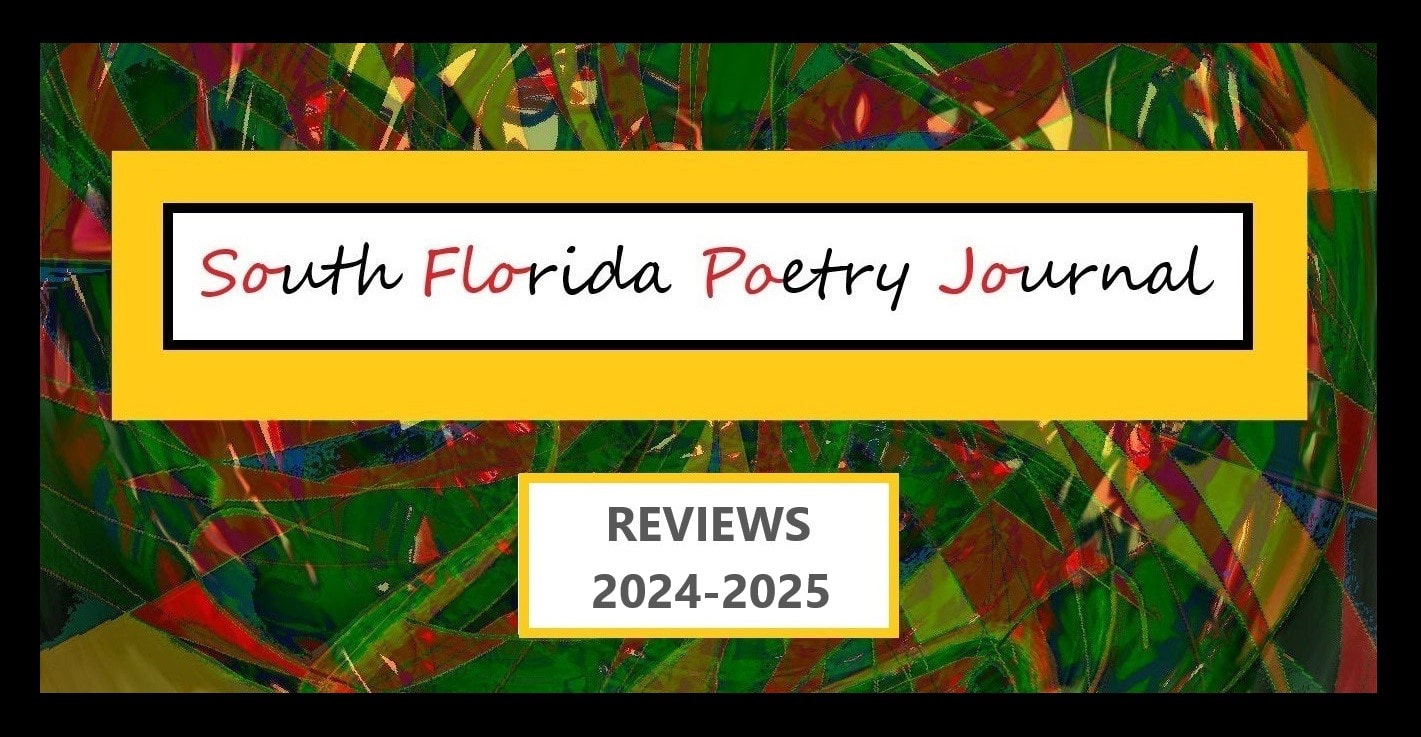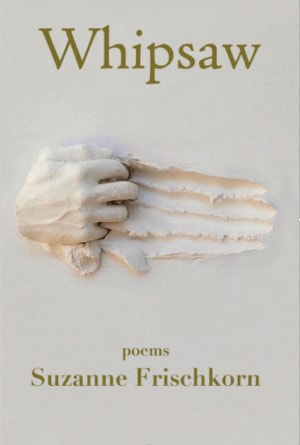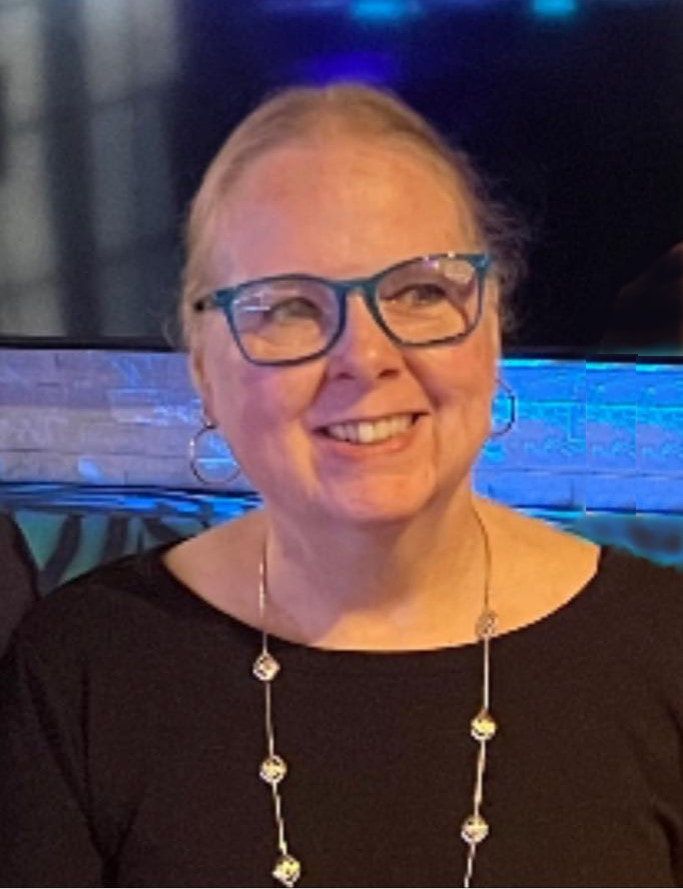SoFloPoJo Contents: Home * Essays * Interviews * Reviews * Special * Video * Visual Arts * Archives * Calendar * Masthead * SUBMIT * Tip Jar
REVIEWS - MAY 2024
After My Father: A Book of Odes by Beth Gylys
& Motherboard by Renée Rossi, M.D.
After My Father: A Book of Odes by Beth Gylys
& Motherboard by Renée Rossi, M.D.
After My Father: A Book of Odes
By Beth Gylys
Dancing Girl Press, 2024
Review by: Judy Ireland, SoFloPoJo Senior Poetry Editor
By Beth Gylys
Dancing Girl Press, 2024
Review by: Judy Ireland, SoFloPoJo Senior Poetry Editor
|
Restoring Dignity: Bethy Gylys’ After My Father: A Book of Odes
Beth Gylys’ After My Father: A Book of Odes includes nine odes bookended by two lyric poems. The very first poem, “Writing My Father’s Obituary,” situates the reader at the crux of the book. With only two lines, it prepares us for the sweet, spare poems that follow. : All of the words have holes, and those holes Have more holes. Now I am the one buried. Gylys elevates the steadfastness and predictability of her father’s habits to solid virtue, then shows how they are undone in the end by his mortality. In “Ode to My Father’s Fat,” he is a big dad, with not a hard edge anywhere, my father was ample, curvaceous, Rubenesque without the femme. But in the second half of the poem, “we watch him hollow, / cinch his belt another hole.” The next three odes praise the white handkerchiefs her father carried, his daily Manhattans, and his love for bacon. Each poem turns as time and physical deterioration set in. His life becomes so unlike anything my father would have imagined for himself. “Ode to My Father’s Wishes” goes inward, explores the wish he had for a life as a sportscaster, just as “Ode to My Father’s Prayers” remembers his prayers that persisted perhaps out of habit, like so much else in life, even when they were barely audible. The next to the last poem in the book, and the final ode, is “An Ode to My Father’s Day-Timers.” The poem begins: Oh, but they are dull and he kept them all: The busy, well-documented life of the Father ends at the end of this poem, the date and time noted as he might have recorded them in his Day-Timer: March 13th Time of death 10:04. This small book is an account of the hollows that are left behind by the passage of time and the final passing of those whom we love. The poet begins the book by telling us, “Now I am the one buried,” and she ends the book by saying, the cavern in your chest is his, one of the many things he chiseled for decades into the walls. The parent who helped form you is now gone and staying gone: “You wake up, and still / you have no father.” The “you” is no longer the “I” of the very first poem. The poet’s deft hand has drawn us into the circle of grief, where “there is no / when or where.” Beth Gylys published a poem entitled “My Father Drowning” in her 2020 collection, Body Braille. In it, the poet speaks of how this man who kept her child-self safe in the water is now “drowning” in his own sea. Similar themes of waning power and loss of dignity underpin this collection, but the odes bring about a restoration of that dignity as the reader admires this man whose ordinariness was anything but ordinary. |
|
Motherboard
By Renée Rossi, M.D., Kallisto Gaia Press January 2021 Review by: Doris Ferleger, Oh.D, [email protected] …. There might be a late autumn wind whipping outside, thrashing what few dead leaves hold steadfast to swaying limbs. For it is dark and still no stars. But she has waited long enough and can see stars in daylight. She has given everything: blood, milk, muscle, sinew and bone. (“Sometimes, a Woman Stands Up”) Renee Rossi’s second volume of poetry begins with this lyrical yet muscular, personal, and moving scene: a woman stands up and keeps walking—away from the table, away from the patriarchy, away from a too narrow life. A woman stands up and invites us to join her on a journey forward, and back in time to the world of priestesses and goddesses, of epigenetics, of wounded and strong mothers and grandmothers, mythological women, and the great mother—earth. A cornucopia of compelling and interconnected themes emerges with each poem: a woman’s courage, connection and disconnection with self, other and the body, spiritual questions, meditations into the human condition, and the intricacies of mother-daughter, mother-son- relationships. The poet brings a unique feast of powerful voices to the table of poetry: we have intimate conversations with all the guests at the new table of life: the young mother, dying mother, ghost of mother, mother earth, child- daughter, mature daughter, surgeon daughter/mother, sister, lover, healer, spiritual wisdom carrier and seeker, and lastly the necessary body we all inhabit for our time on earth. Demeter, Persephone, and a priestess also appear at the table. I admire how the poet’s personal experiences connect us with every-woman’s experiences throughout history. For instance, when the poet speaks of sorrow, she also speaks of how women of other times heal from sorrow, accompanied perhaps by a priestess: There is an herb called Ashoka that takes away a woman’s sorrow…. And there may be a temple somewhere with a priestess swinging a censer, the smoke coasting along the flight path of swallows. It reaches her. (Sometimes a Woman Stands Up) Throughout the pages of Motherboard, many poems are glazed with a uniquely humble yet confidently inspiring oracular voice: …. The truth about intimate relationships is they can never be better than the ones we have with ourselves. There’s epigenetics, and memory and craving. But the important thing to remember is that ultimately there are No tragedies. …. “Overcome any bitterness that may have come….” Each of us carries a certain measure of cosmic pain. (“Irresponsibility in Everything”) I trust this voice as it also presents a street level wisdom alongside its existential, poetic wisdom. In “Spring’s Wrathful Deities” we read: Stratus clouds, they’re the only ones/joining us at street level. And in the stanza that follows we read a metaphorically driven combination of street level and spiritual insight: Shanti deva says an uncompassionate act is like planting a dead tree. “The loss of daughter to mother, and mother to daughter, is the essential female tragedy.” On cloudy nights, dung beetles have difficulty orienting themselves. They need sun. Motherboard is also full of embodied poems, curvaceous, corpulent, muscular, fertile, milk giving, seed growing. This practice of being a mother, / it’s a type of dismemberment, the poet writes in “Tower of Mothers.” Bronze Tower of Mothers/ who face outward breasts and eyes to the crowd, trying to shield their sons/from going to war. In “From Motor City Mulch,” Rossi writes of bodies from her perspective as a doctor in training: …. the hospital where I learned to put breathing tubs in the ones who didn’t make it: the ones still warm and pliable. And in “Dakinis,” the poet writes of the joyous body of womanhood: They throw their breasts over their shoulders and run. Personally, I am profoundly moved by the poetry that inhabits the body so fully, cervix ripe as pomegranate, from a variety of perspectives. Rossi also writes in several poems of the body of Mother Nature: If you study earth too long a coiled fiddlehead fern erupts from a running stream…. How the cabbage rose opens with the vulnerability of time, or a jet flare serrates the sky. . (“Do We Know How She Survives?” I savored the thoughtful order of the poems, how the seed of a plant in one poem becomes the seed of the baby in the womb in the next poem. Throughout the pages of Motherboard, I admire how the poet’s mind is one that synthesizes, how she invites the reader to see and feel and hear the interconnectedness of life, and to consider the vital interrelatedness of life and death. In “Self Portrait of a Birth from Hand Held Mirror,” the poet/speaker reveals to the reader what she will or will not tell her son when he asks about the fetal skeleton he sees in her medical text, or when he asks why she is called upon by the neighbor to bury the dead hummingbird. It is because she is used to death/ has cross-clamped arteries and veins…/leading in and out of that place that connects the two of you. As a mother, myself, I appreciate how sensitively Rossi writes of such small, yet monumental moments of making such choices as a mother of what to reveal about life and death. I am also deeply impressed with Rossi as a poet of place, not just the place of the body and Mother Earth. She invites us to see and feel her birthplace. In “My Father’s Firearms,” she writes: It was a Detroit-heavy-sky-day, and the water broke in grey waves, but winter grasses swayed to some heartbeat around ponds and walkways of Frederick Law Olmsted’s sorriest jewel park— Concomitantly, the poet speaks deeply of the ones she has loved in these places. In “My Father’s Firearms,” she addresses her complex relationship with her father as she asks him, a police lieutenant, a million times, if he’s ever shot anyone. The poem ends with this: still you never answered me. Further, in a brilliantly, loosely woven crown of sonnets, rich with metaphor, Rossi explores her compelling, complex relationship with her mother who is revealed in her own intricacies. Pursed in determination, her lips shape smoke rings larger than Saturn’s, caressing a cigarette as if it were the joystick to another life. Molding the ash tip to a fine point, she reads about the Ming Dynasty and its curious custom of foot binding. How the lotus petal feet couldn’t venture far from home—crimped…. The banquet of poems about the speaker’s son and their relationship are easeful, joyful, and wonderfully relatable. I smiled in recognition of the son who ate sand and dismantled a dead computer. Though my son ate only the sand retrieved on his half-eaten peach that had fallen onto the beach, Rossi’s son enjoyed the grit in his sandbox. And while my son also took apart a defunct computer, he did not gift me with a uniquely decorated dead motherboard. My son used to eat sand in the sandbox when he was little…. A little beach growing inside him…. He used a whole roll of film photographing a pig bug rolling around after he’d lifted the stone and said, there I saved that one (“Motherboard”). The mother in the poem Motherboard doesn’t have the heart to say the pill bug requires dark places to live, just as she doesn’t correct his mismatched socks. She even admires the whole roll of her film filled with his photos of a dog’s eye or anus up close. I found myself continually appreciating the mother’s compassion toward her son. All this powerful poetic memoir, rich narrative and lyric, metaphor and image on the table is further made more delicious by the unabashed spiritual wisdom spread through the pages, wisdom made wiser when merged with humility, a self-mocking humor: There are more angels than wounds on this earth. A nun at school had said. Or maybe she said, Every life has a moment like this one that breaks you into new pieces. Or maybe she just scolded me for spitting out a piece of chewing gum into the air at the end of recess and having it land in my hair. (“Irresponsibility in Everything”) Finally, I am in praise of Motherboard as it takes on timeless, compelling life questions: How is relationship the sharing of one’s solitude with another? (“Irresponsibility in Everything”). Rossi further reminds us of the questions we may have pondered as children, but never asked, like, how did snow globes get invented as a result of a happy accident? Most impressively, in the last poem, Rossi leaves us with a question meant to remain unanswered. We get to experience a childlike delight in the poem’s dessert: delectable delicacies of life’s untold mysteries: When children show up at the snow globe factory, /they must be mesmerized/as they start shaking the globes all at once—/and the snow, depending on the phases of the moon, falls everywhere/everywhere but never melts and never sticks. Renée Rossi has published the full-length poetry collection, TRIAGE, and two chapbooks: Third Worlds, and STILL LIFE, winner of the Gertrude Press Poetry Prize. Her poems have appeared in Comstock Review, Southwest American Literature, Journal of Medical Humanities, and Best of the Net Anthology. She recently completed a Master’s Degree in Ayurveda and teaches integrative medicine courses. A native of Detroit, she currently divides her time between the Northeast Kingdom of Vermont and other places that she finds compelling. |
REVIEWS - February 2024
Whipsaw
By Suzanne Frischkorn
ISBN: 978-1-934695-84-5
Anhinga Press, 2024
Review by: Judy Ireland
Whipsaw
By Suzanne Frischkorn
ISBN: 978-1-934695-84-5
Anhinga Press, 2024
Review by: Judy Ireland
|
Suzanne Frischkorn’s fourth book of poems, Whipsaw, pulls the reader deep into new and familiar territory. Dual forces are everywhere in these poems. Predators are ever-present, but strength and endurance can answer the danger. The natural world is being destroyed and must be grieved, even as it generates more life and sacred sustenance. The gorgeous sonnets of Frischkorn’s earlier book, Fixed Star, have given way in this new book to a wonderful variety of poetic forms, including one ten-stanza erasure poem that comprises an entire section of the book. “Before the Gods Existed the Woods Were Sacred” includes ten stanzas of six lines each, all filled with reverence for the forest and the language that arises from the natural world. The text Frischkorn chose for her erasure was a 1958 book of architectural philosophy by Gaston Bachelard, whose philosophy has been compared to that of Heidegger in terms of stature. Bachelard’s The Poetics of Space explores how one’s physical environment, especially one’s home, affects humans, their consciousness, and their poetics. In Frischkorn’s poem, there is a real connection between the woods and humans, between our identity and our original home: And with a stroke of the pen I name myself. To be long in the woods we no longer know where we are. A primary attribute to the forest. We feel this in the very structure of our bodies: This delicate Aeolian harp nature has set at the entrance to our breathing. A sixth sense. It quivers to sing. The vowel a, the vowel of immensity. We take infinity into our lungs. We breathe cosmically. The tree knows no bounds. The tree has its being in you. The tree and its dreamer grow tall. The title of the book finds expression in nature as well, especially in a poem titled, “Doe”. It is twilight, and a doe has left the forest and is off-kilter, trying to get her footing so she can flee: she is righting herself – as cars speed past her, speed toward her, in that dangerous time twilight – the refraction & scatter of sunrays when the sun slips below horizon, …. blinded by sun, on the road. Her natural grace abandoned her, she favors her left side, the doe in the midst of righting herself, her eyes on the woods. The fae hold their breath. The speaker of the poem watches as the doe lurches back and forth, whipsawing between danger and escape, seeing the struggle continue in her rearview mirror, but never seeing the outcome. This is not the same circumstance, but it is the same degree of danger faced by the daughter in the first poem in this collection, in “Dear America.” The speaker will make sure the young woman is prepared: It’s time to teach my daughter how to shoot an arrow How to use a knife How to hit the center of a target The beautiful scope of this book makes every poem belong to the whole. There are elegies for a whale calf and for baby chicks in Ohio, alongside verses for women who need freedom despite the danger. Suzanne Frischkorn uses myth and metaphor and the movement of seasons to give us this deeply satisfying volume of poetry. Fixed Star was a hard act to follow, but Whipsaw may be Frischkorn’s best work yet. Whipsaw will be released in April of 2024. |
MICRO REVIEWS
LSU Press has been sending me poetry collections.
I don't write reviews. I don’t write them because I’m lousy at writing them. But I’m taking a crack at it now simply because I want to acknowledge my gratitude to LSU, and because the two collections I’m about tell you about are so worth talking about.
I’ve never heard of either Sally Van Doren or Morri Creech before I received their books: Sibilance by Van Doren, and The Sentence by Creech.
Sibilance is remarkable. Let me steal a blurb from the back cover that says it all. It’s by Rachel Eliza Griffiths--
“Tactile, luminous, and original in voice, Sally Van Doren’s Sibilance is a journey of the body andits elusive ache and the shape of living in the name of life itself.”
I’ve seen blurbs using the word luminous before. But that word for those collections fell short of the mark. They were not “Luminous.” But it certainly is on the money when used for describing Sibilance.
This is an unexpected pleasure. Van Doren’s work is wonderful. I love this book.
For Creech’s The Sentence, I’d use the word stunning. Creech’s control and craft is superb. His use of rhyme, magnificent. Nobody writes formal poetry as well as this. Nobody.
I’m lulled and emblazoned at the same time. I love this book. I LOVE this book.
-Lenny DellaRocca
I don't write reviews. I don’t write them because I’m lousy at writing them. But I’m taking a crack at it now simply because I want to acknowledge my gratitude to LSU, and because the two collections I’m about tell you about are so worth talking about.
I’ve never heard of either Sally Van Doren or Morri Creech before I received their books: Sibilance by Van Doren, and The Sentence by Creech.
Sibilance is remarkable. Let me steal a blurb from the back cover that says it all. It’s by Rachel Eliza Griffiths--
“Tactile, luminous, and original in voice, Sally Van Doren’s Sibilance is a journey of the body andits elusive ache and the shape of living in the name of life itself.”
I’ve seen blurbs using the word luminous before. But that word for those collections fell short of the mark. They were not “Luminous.” But it certainly is on the money when used for describing Sibilance.
This is an unexpected pleasure. Van Doren’s work is wonderful. I love this book.
For Creech’s The Sentence, I’d use the word stunning. Creech’s control and craft is superb. His use of rhyme, magnificent. Nobody writes formal poetry as well as this. Nobody.
I’m lulled and emblazoned at the same time. I love this book. I LOVE this book.
-Lenny DellaRocca









